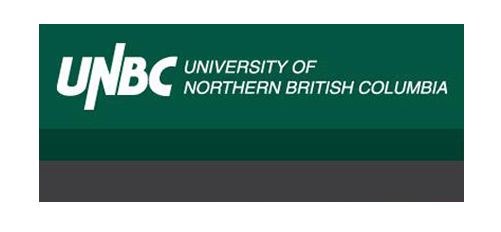The Community Care Centre is suspending all patient intakes and may close entirely at the end of June if it can't find new funding.
The UNBC-funded centre has offered low-cost counselling services in Prince George's downtown for the past six years, but the university will no longer cover the cost of the full-time lab instructor and coordinator Ryan James.
"This year I simply do not have any additional soft funding to put into that position," said Blanca Schorcht, UNBC's dean of Arts, Social and Health Sciences. "The decision was made due to fiscal priorities that the university is making and the focus is on our educational priorities."
James' term ends June 30. The centre announced Wednesday morning that it could no longer take any more patients given that timeline and the 50 people already on its wait list. The centre counsels about 250 people a year.
"If we can't find other funding then the centre really doesn't exist," said James, adding that would need to be in place by May to be on the safe side. He's been working behind the scenes to try and save the centre, including talks with the university for alternative solutions.
For the university, the centre was always regarded as a pilot program, Schorcht said.
"It's unusual for a pilot for it to run this long," she said of the program that served as a practicum for six to eight education and social work students each year. "The intention had always been that ultimately the centre would be self sustaining and that hasn't happened."
All told, Schorcht estimated the university committed $90,000 a year for salary, benefits and "odds and ends," not including the value of the space.
Schorcht said it's important not to confuse the community centre with counselling services still offered to staff and students through the campus Wellness Centre.
"That is not being cut," she said.
While James said his salary doesn't reflect that number and objected to calling it a "pilot," he was aware the university wanted the centre to move towards another model.
"From the beginning it has always been run as a not for profit with the idea that we could try to build relationships that might help sustain the salary," said James, adding last year it raised $30,000 of donated training to help sustain the centre.
"The challenge is that we can't write public funding grants for salary other hurdles to achieving sustaining dollars."
And raising funds from often low income clients, who are charged $10 for visits, is not an option.
James said the centre's educational importance was at times overlooked.
"I think (UNBC has) done what they can with what they know, but I don't they feel that this is important enough to put money towards, to continue it past a term appointment," he said. "It really is an educational service one that is not-for-profit. We are still striving to build capacity for the educational component and service to the community."
While the university won't fund the position, offering continued use of the university-owned space at the downtown BMO Centre isn't out of the question.
"That's possible," Schorcht said. "It's all being discussed as part of the discussions on alternative models."
Ryan, a UNBC alumnus who started the centre as his graduation project, worries about what will happen to the clients.
"We're low cost so they can't afford private practice and we're not specialized so we take general concerns, mild to moderate," said James. "We're more preventative than anything else, I think. So if we're not around the mild to moderates become more severe and then they would end up going to Northern Health or more specialized services."



